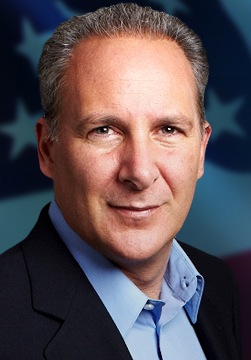Fed Statement Commentary
The Fed's tightening campaign, which was supposed to restore a semblance of monetary normalcy, after a decade of extraordinary stimulus, is officially over. The curtain came down far earlier than just about anyone in the mainstream had predicted. Given that the Fed's sounded the retreat before any real blood was shed, should put into question whether they will ever be able to stand tough again.
According to most analysts, the economy is still strong and the financial markets are healthy. Yet despite this, yesterday the Fed announced no rate hikes for 2019 (and perhaps just one in 2020) and a premature September ending of its $50 billion per month balance sheet reduction program. When announced just last year, that program was supposed to cut the Fed's $4.5 trillion bond portfolio by at least half. Instead we will be lucky to get below $4 trillion. Barely a dent.
Their rapid reversal should cause many to wonder if the economy is far weaker than the common wisdom suggests. But that would require investors to look past the gift of a dovish Fed. That's not going to happen in today's market hysteria.
The first real evidence that Fed tightening was making an impact on financial markets and the economy came in December of last year, when rising interest rates led to a downward repricing of stocks, setting off alarm bells on Wall Street. Since then, the Fed has rolled back prior commitments to raise rates and pare down their balance sheet. Yesterday's statement brings that process to a close. The Fed is done. I believe It's next move will be to stimulate not to tighten.
The new normal is that monetary policy will never be neutral or tight again. We are in the age of permanent stimulus. But investors still don't seem to understand the ramifications. If they did, gold would be soaring and the dollar would be tanking. Perhaps surprise easing from the Fed, which may not be far off, will finally get the markets attention.
But once investors finally figure out the new normal, a currency crises far worse than the 2008 financial crisis could bring that to a quick end. So it won't be normal for long.
The commentary below is from Peter Schiff, Chief Economist and Global Strategist of Euro Pacific Capital and author of the The Real Crash: America's Coming Bankruptcy. Please feel free to excerpt what you like with proper attribution. To speak with Peter, please contact Andrew Schiff at 203-662-9700 ex. 135 or [email protected].
********


















